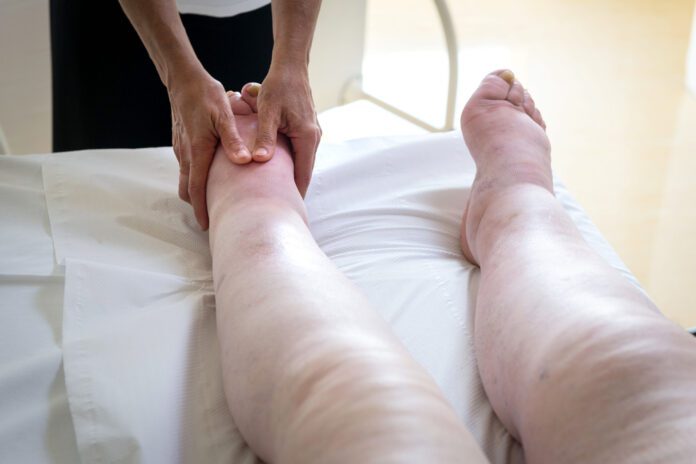Overview Of Edema, Idiopathic
Idiopathic Edema is synonymous with the term Swelling. Swelling is the enlargement of organs, skin, or other body parts. It is caused by a buildup of fluid in the tissues. The extra fluid can lead to a rapid increase in weight over a short period of time (days to weeks).
Swelling can occur all over the body (generalized) or only in one part of the body (localized).
Commonly Associated With
Edema; Anasarca
Causes Of Edema, Idiopathic
Swelling can be caused by any of the following:
- Acute glomerulonephritis (a kidney disease)
- Burns, including sunburn
- Chronic kidney disease
- Heart failure
- Liver failure from cirrhosis
- Nephrotic syndrome (a kidney disease)
- Poor nutrition
- Pregnancy
- Thyroid disease
- Too little albumin in the blood (hypoalbuminemia)
- Too much salt or sodium
- Use of certain drugs, such as corticosteroids or drugs used to treat heart disease, high blood pressure, diabetes
Exams & Tests
Except in emergency situations (heart failure or pulmonary edema), your provider will take your medical history and will perform a physical examination. You may be asked about the symptoms of your swelling. Questions may include when the swelling started, whether it is all over your body or just in one area, what you have tried at home to help the swelling.
Tests that may be done include:
- Albumin blood test
- Blood electrolyte levels
- Echocardiography
- ECG
- Kidney function tests
- Liver function tests
- Urinalysis
- X-rays
Treatment Of Edema, Idiopathic
Treatment may include avoiding salt or taking water pills (diuretics). Your fluid intake and output should be monitored, and you should be weighed daily.
Avoid alcohol if liver disease (cirrhosis or hepatitis) is causing the problem. A support hose may be recommended.



